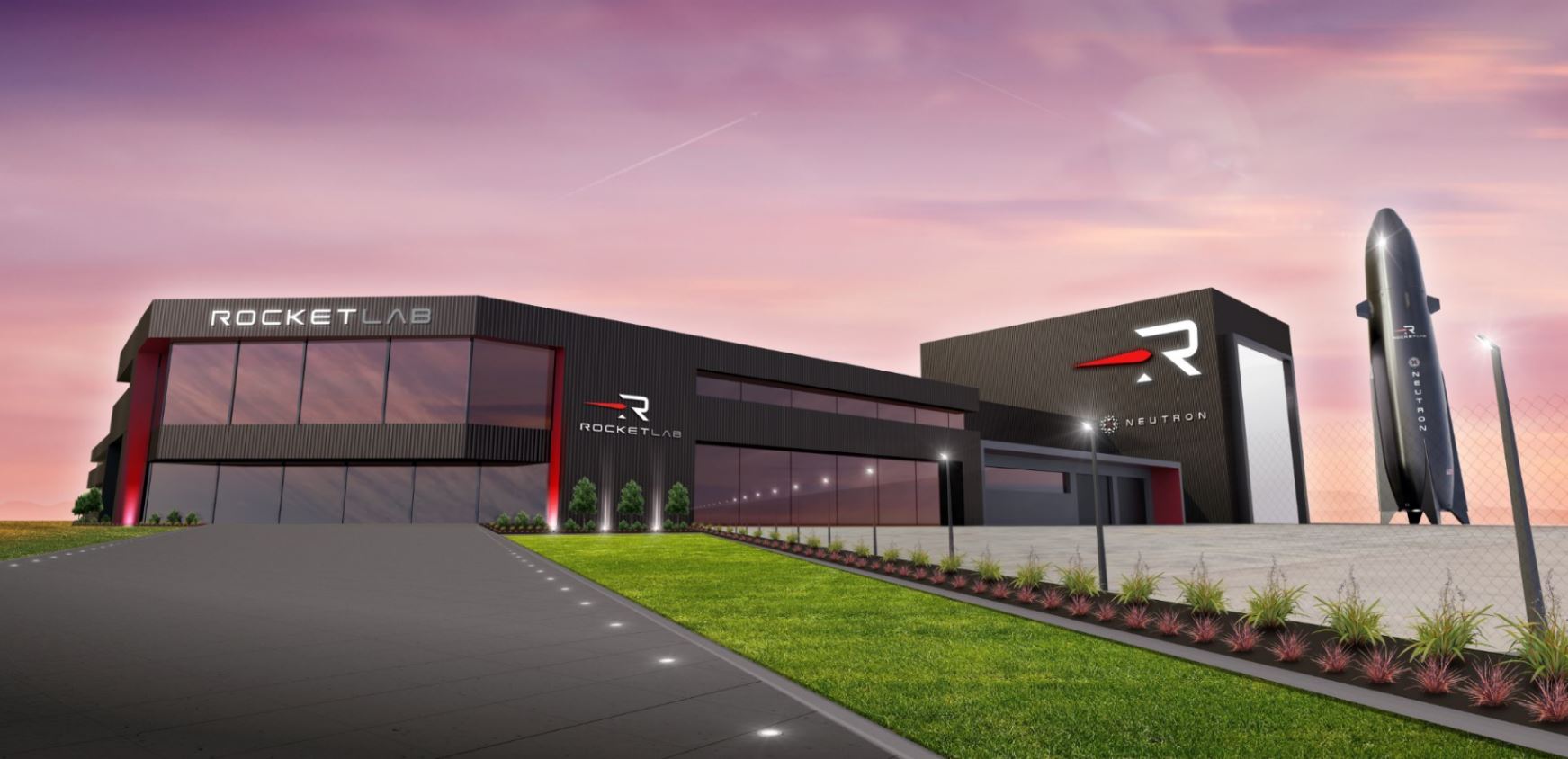Rocket Lab USA:
A Comprehensive History From Conception to Present (2006 to Present):
Founding and Early Years (2006-2018):
- Foundation (2006): Rocket Lab was founded by New Zealand entrepreneur Peter Beck.
- First Rocket Launch (2009): The Atea-1, Rocket Lab's first rocket, launched from Great Mercury Island.
- Establishment in the USA (2013): Rocket Lab expanded operations to the United States, establishing a presence in Los Angeles.
Electron Rocket Development (2014-2018):
- Introduction of Electron (2015): Rocket Lab introduced the Electron, a small satellite launch vehicle designed for frequent and dedicated launches.
- First Test Flight (2017): Electron's first test flight, "It's a Test," took place.
- Commercial Operations Begin (2018): Rocket Lab initiated commercial operations, offering affordable small satellite launches.
Rapid Expansion and Innovations (2018-2024):
- Photon Satellite Platform (2019): Rocket Lab announced the Photon satellite platform for in-house spacecraft manufacturing.
- Recovery and Reuse (2019-2021): Rocket Lab began working on re-usability with the Electron rocket's first-stage recovery, aiming to make Electron a reusable launch vehicle.
- Opening Launch Complex 2 (2020): Rocket Lab inaugurated Launch Complex 2 at the Mid-Atlantic Regional Spaceport in Virginia.
- Neutron Announcement (2021): Rocket Lab unveiled plans for the Neutron rocket, a larger launch vehicle aimed at serving a broader market.
- First Electron Re-usability Test (2021): Rocket Lab successfully conducted the first Electron rocket recovery test.
- Neutron's Maiden Flight (Planned 2024): The Neutron rocket is expected to make its maiden flight, targeting medium and heavy satellite payloads.
Credibility:
- Track Record: Rocket Lab has demonstrated a successful track record of small satellite launches, providing reliable and cost-effective access to space.
- Commercial Success: The company has become a trusted name in the small satellite launch market, attracting commercial, governmental, and research payloads.
Mission, Goals, and Vision:
Mission:
- Rocket Lab's mission is to provide frequent and reliable access to space for small satellites.
Goals and Vision:
- Small Satellite Market: Continue dominating the small satellite launch market.
- Re-usability: Develop and implement reusable rocket technology.
- Broaden Launch Capabilities: Expand launch capabilities with the introduction of larger rockets, such as Neutron.
- In-House Satellite Manufacturing: Establish a presence in satellite manufacturing with the Photon platform.
Space Diplomacy:
- International Collaborations: Rocket Lab collaborates with various countries and organizations for satellite launches, contributing to global space initiatives.
Public Perception, and Influence:
- Innovation in Small Launch Vehicles: Rocket Lab is often perceived as an innovative force in the small satellite launch industry.
- Educational Initiatives: The company has engaged in educational outreach and STEM initiatives to inspire interest in space exploration.
12 Key Figures:
- Peter Beck: Founder and CEO, visionary leader driving Rocket Lab's development.
- John Insprucker: President, responsible for overseeing Rocket Lab's launches and operations.
- Lars Hoffman: Chief Commercial Officer, overseeing customer relations and business development.
- Jonathan Hofeller: Vice President of Commercial Sales, involved in customer acquisition and satellite launch contracts.
- Anya Babbitt: General Counsel, overseeing legal affairs and compliance.
- Richard French: Chief Financial Officer, managing Rocket Lab's financial strategies.
- Becky Lavender: Vice President of People Operations, focusing on human resources and company culture.
- Grant Bonin: Chief Engineer, leading the technical development of Rocket Lab's launch vehicles.
- Ingo Engeln: Vice President of Vehicle Design and Build, involved in rocket design and manufacturing.
- Jyotika Virmani: Head of the Neutron Program, overseeing the development of Rocket Lab's Neutron rocket.
- Peter Thompson: Vice President of Photon Satellite Platforms, leading the development of in-house satellite manufacturing.
- Ben Malacarne: Vice President of Launch, overseeing the planning and execution of rocket launches.
Divisions, and Centers:
- Rocket Lab Headquarters: Located in Long Beach, California, serving as the company's main office.
- Launch Complexes: Operates Launch Complex 1 in New Zealand and Launch Complex 2 in Virginia, USA.
- Photon Satellite Center: Involved in the development of in-house satellite manufacturing through the Photon platform.
Member State, and Collaborations:
- Private Company: Rocket Lab is a private company with operations in multiple countries, collaborating with various space agencies, companies, and governments.
Joint Ventures:
- Strategic Partnerships: Collaborates with satellite manufacturers, payload providers, and space agencies for joint ventures and integrated services.
Key Area of Activity:
Small Satellite Launch Services:
- Rocket Lab specializes in providing launch services for small satellites, offering dedicated and ride-share missions.
10 Key Technologies:
- 3D Printing: Utilizes additive manufacturing for rocket components, reducing costs and improving production speed.
- Electron Rocket Design: Innovative design tailored for frequent and cost-effective small satellite launches.
- Photon Satellite Platform: In-house satellite manufacturing technology providing a turnkey solution for customers.
- Rutherford Engines: Electric pump-fed engines designed for high performance and efficiency.
- Re-usability Technology: Developing technology for recovering and reusing Electron rocket first stages.
- Kiwi Space Radar: Rocket Lab's space traffic management tool for monitoring and tracking objects in space.
- Guidance and Navigation Systems: Advanced systems for precise rocket trajectory control.
- Launch Vehicle Autonomy: Incorporates autonomous systems for enhanced launch control.
- Data Analytics: Utilizes data analytics for optimizing launch processes and improving reliability.
- Propulsion Systems: Develops and refines propulsion technologies for rocket stages.
Financial Standing:
- Private Company: As a private company, detailed financial information may not be publicly disclosed. The company's valuation and financial health are influenced by investor funding, launch contracts, and market dynamics.
Notable Missions:
- It's a Test (2017): Electron's maiden flight to test the launch vehicle.
- Still Testing (2018): Demonstrated increased payload capacity and improved rocket performance.
- Look Ma, No Hands (2019): Electron rocket's first successful commercial payload deployment.
- Running Out of Toes (2019): Demonstrated Rocket Lab's ability to rapidly deploy satellites.
- Pics Or It Didn't Happen (2020): Carried multiple Earth observation satellites into orbit.
- Don't Stop Me Now (2021): Successfully deployed communication and Earth observation satellites.
- BlackSky Global 20 and 21 (2021): Launched two Earth observation satellites for BlackSky.
- They Go Up So Fast (2021): Deployed a mix of satellites, including Earth imaging and technology demonstration payloads.
Operations, and Flight:
- Regular Launch Operations: Conducts regular launch operations from Launch Complex 1 and Launch Complex 2.
- Launch Frequency: Strives for a high launch frequency, providing reliable access to space for small satellite customers.
Launch Vehicles:
- Electron Rocket: A small-lift launch vehicle designed for small satellite deployment.
Launches:
- Regular Launch Cadence: Rocket Lab aims for a regular launch cadence, providing routine access to space for customers.
Impact, and Legacy:
- Changing the Small Satellite Paradigm: Rocket Lab has significantly impacted the space industry by providing affordable and dedicated launches for small satellites.
- Innovation in Re-usability: The company's efforts in developing reusable rocket technology are poised to further revolutionize the small satellite launch market.
Achievements:
- Commercial Small Satellite Leader: Established itself as a leading provider of commercial small satellite launch services.
- Electron's Reliability: Demonstrated the reliability and versatility of the Electron rocket.
- Photon Satellite Platform: Introduced the Photon satellite platform, expanding Rocket Lab's capabilities into in-house satellite manufacturing.
Innovations:
- Photon Satellite Platform: Introduced an innovative turnkey solution for satellite manufacturing.
- Re-usability Technology: Pioneering efforts in developing reusable rocket technology for small satellite launch vehicles.
Challenges:
- Competitive Landscape: Faces competition in the growing market for small satellite launches.
- Technological Advancements: Addressing challenges associated with the development and testing of new technologies, including re-usability.
Future Endeavors, and Initiatives:
- Neutron Rocket: Launching the Neutron rocket to cater to medium and heavy satellite payloads.
- Re-usability Implementation: Further advancing re-usability technology to enhance cost-effectiveness.
- Photon Satellite Manufacturing: Expanding capabilities in in-house satellite manufacturing through the Photon platform.
- Market Expansion: Continues to explore new markets and opportunities in the evolving space industry.
- Space Traffic Management: Continued development and utilization of the Kiwi Space Radar for space traffic monitoring.



